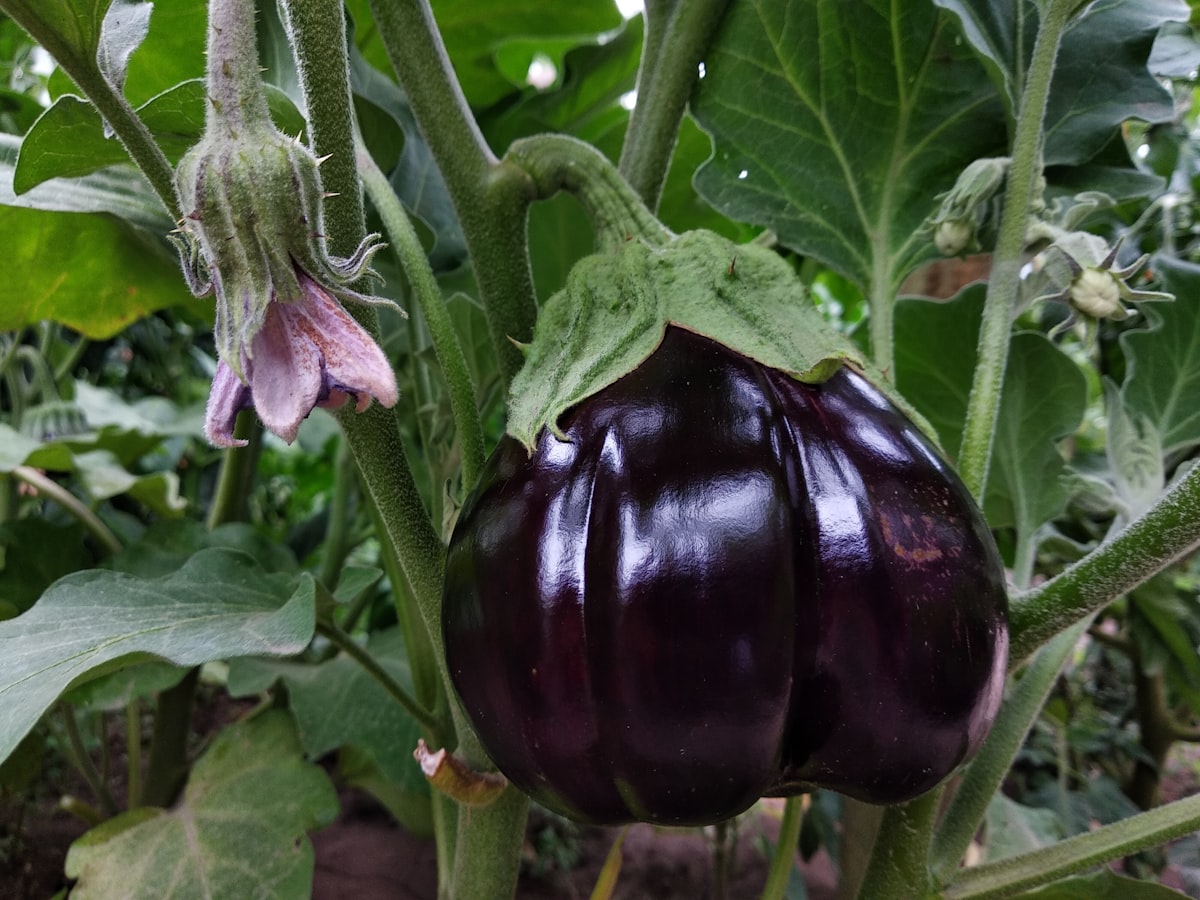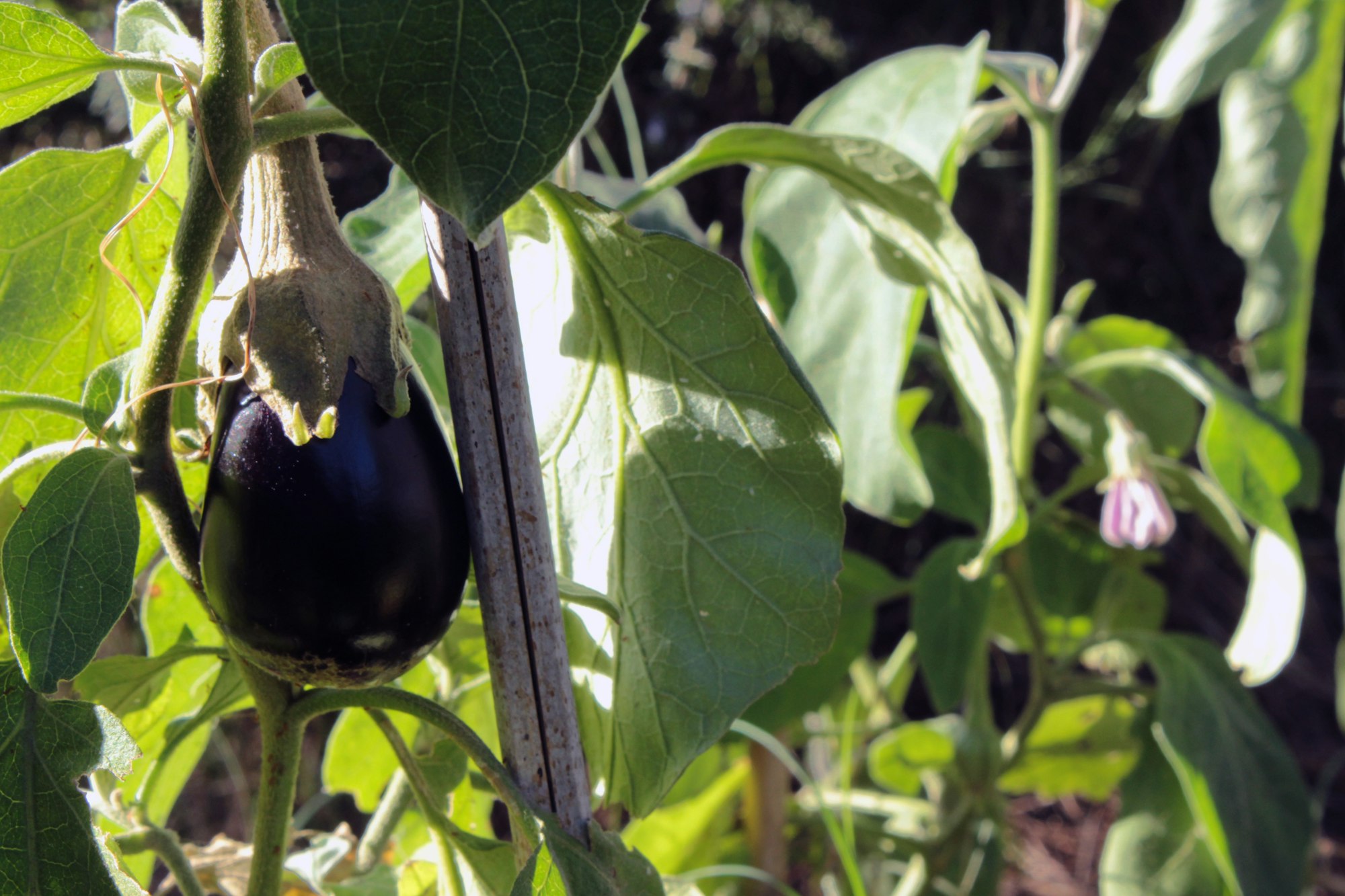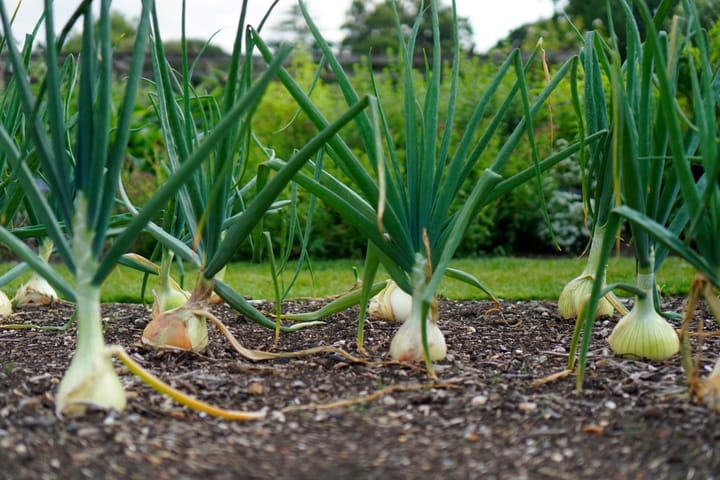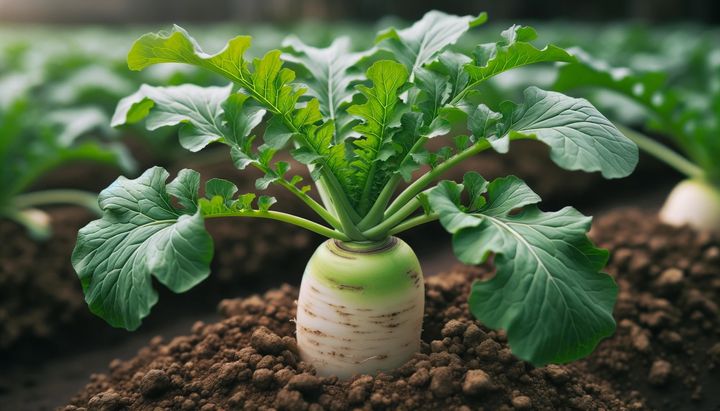How to Grow Eggplant
Growing eggplant can be a rewarding addition to your garden, as they are a versatile and popular vegetable worldwide.

Table of Contents
You'll need warmth, nutrient-rich soil, and proper planting techniques to grow eggplant successfully.
Start by planting eggplant seeds indoors about 6-9 weeks before the last expected frost, or choose sturdy transplants up to a foot tall.
After nighttime low temperatures are consistently above 50°F, transplant your seedlings outdoors in a sunny spot with slightly acidic to neutral soil pH.
About Eggplant
Eggplant (Solanum melongena), or aubergine, is a popular annual vegetable originating in India.
There are various eggplants, including Japanese, Asian, and Italian, with various shapes, sizes, and colors.
You will find eggplants in many varieties, such as Black Beauty, which has a deep purple, large, and round shape, while other types are slender and long.
Eggplants come in black, purple, white, yellow, and striped colors, catering to different tastes and culinary uses.
Growing Eggplant
Before planting eggplants, start by sowing seeds indoors about eight weeks before the last frost.
Use a potting mix and grow light to encourage healthy seedlings.
You can transplant your eggplant seedlings outdoors when the soil temperature reaches at least 50°F (10°C). But before that, remember to harden off the seedlings to help them adjust to outdoor conditions.
Choose a location with full sun exposure and plant your eggplants in raised beds or containers filled with compost and garden soil.
This will ensure the proper soil temperature required by eggplants to thrive.
Space the plants about 18 to 24 inches apart, enabling them to achieve optimal growth.
Don't forget to support your eggplant plants, which will prevent the branches from bending under the weight of the fruit.
Remember that eggplants, especially deep-purple varieties, need a long season with 100 to 120 days to maturity.

Caring for Eggplant
Sun and Temperature
Eggplants thrive in full sun and warm weather. Ensure your plants receive at least 6 hours of direct sunlight daily, and maintain a temperature between 70-85°F (21-29°C).
Water and Humidity
Consistent watering is essential for healthy eggplants.
Apply water directly to their root zone using drip irrigation or a soaker hose, keeping the soil consistently moist but never waterlogged.
Be mindful of humidity levels, as eggplants prefer moderate humidity.

Soil
Eggplants need well-drained soil with a pH slightly acidic to neutral (6.0-7.0).
A rich concoction of organic matter in the soil will provide necessary nutrients and improve drainage.
Fertilizer
Fertilize eggplants every 4-6 weeks with a balanced, slow-release fertilizer or nutrient-rich compost.
Avoid using high-nitrogen fertilizers, as they encourage foliage growth at the expense of fruit production.
Repotting
If growing eggplants in containers, use a well-draining potting mix and choose a pot at least 12 inches deep.
Repot as needed to accommodate growing roots and avoid limiting plant growth.
Pruning and Propagation
Prune eggplants by pinching off the growing tips after reaching a height of 12-18 inches to promote bushier growth.
Propagate eggplants by taking cuttings from healthy plants, preferably during their active growth phase.
Troubleshooting Plant Problems
Growing Problems
Ensure your eggplants are grown under the right conditions, including soil, temperature, and water needs.
Inappropriate growth conditions may result in bitter fruit and reduced productivity.
Rotate your crops every other year, maintain weed-free gardens, and add organic matter such as straw as mulch to prevent possible eggplant growing problems.
Pests and Diseases
Watch out for pests like flea beetles, Colorado potato beetles, spider mites, cutworms, and tomato hornworms.
To prevent infestations, use row covers and collars in the early stages of growth. Use insecticidal soap when plants are large enough to withstand attacks.
Bacterial wilt and verticillium wilt are common eggplant diseases.
Ensure proper care and prevention by maintaining a clean, weed-free garden and practicing crop rotation.
Companion Planting
Enhance your eggplants' growth and prevent pests by placing them near beneficial companion plants.
For instance, beans and peas attract beneficial insects that help control pests, while calendula and marigolds repel harmful insects.
Consider combining these plants with eggplants, as they provide a mutually beneficial environment.

Conclusion
Growing eggplant can be a rewarding experience, providing you with delicious ingredients for dishes such as eggplant parmesan and moussaka.
To successfully grow eggplant, start by sowing seeds in a warm, bright location and transplanting the seedlings into nutrient-rich soil when ready.
Remember to keep the soil consistently moist and provide adequate support for the plants as they grow.
Harvest your eggplants when they are young to avoid bitterness and enjoy the fruits of your labor in scrumptious recipes.
Frequently Asked Questions
What are the ideal conditions for growing eggplants?
Eggplants thrive in warm temperatures, ideally between 70-85°F. Ensure they receive at least 6-8 hours of sunlight daily.
How can I successfully plant eggplant seeds in pots?
Fill pots with well-draining, fertile soil, and plant seeds at a depth of ¼ inch. Space seeds about 3 inches apart and maintain a consistent temperature of 75-85°F for successful germination.
What is the proper way to care for eggplant plants?
Water your eggplants regularly to keep the soil moist but not soggy. Add mulch to retain moisture and suppress weeds. Provide support with stakes or cages to prevent the plant from falling over when laden with fruit.
How many fruits can I expect per eggplant plant?
The number of fruits per eggplant plant varies with the variety and optimal growing conditions. Generally, you can expect around 3-6 fruits per plant.
How long does it take for eggplants to mature fully?
Eggplants typically take 100-120 days from seed to harvest. However, this may vary depending on the specific variety and growing conditions.



